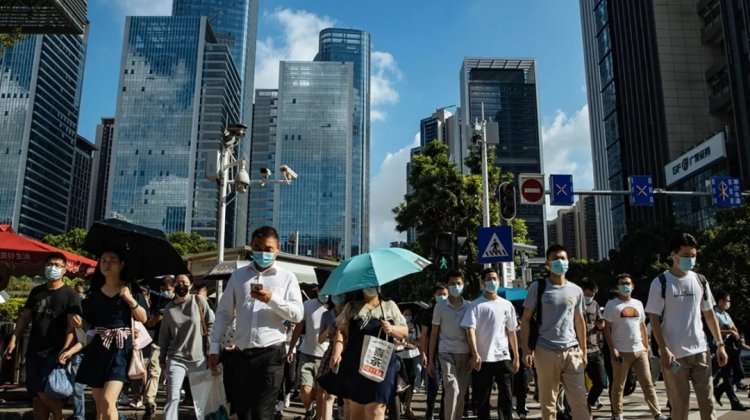
More Preferential Policies for Foreigners to be Launched Here!
China has issued a plan on implementing pilot reforms in Shenzhen to build the city into a demonstration area of socialism with Chinese characteristics in the next five years.
In a highly anticipated move, China’s central authorities released detailed measures on Sunday which aim to build Shenzhen, a city neighboring Hong Kong, into a socialist demonstration area in the next five years, underscoring the country’s determination of further opening-up amid growing external pressure, as well as its ambition of integrating its reform pioneer deeper into a greater bay area.
Supporting Shenzhen, in South China’s Guangdong Province, to pilot the comprehensive authorized reform measures is another significant step to advance the city’s opening-up in the new era and a key move in building a pilot demonstration area of socialism with Chinese characteristics, said the document jointly issued by the general offices of the Communist Party of China Central Committee and the State Council on Sunday.
The city, granted with greater autonomy in the reform of important areas and key links, will advance higher-level reform and opening-up towards higher goals, according to the plan set for the 2020-2025 period.
A series of measures came along with the document such as:
▫Further relax market access for foreign capital on cutting-edge technologies;
▫Establish a special negative list for the city;
▫Further open up in sectors including energy, telecoms, public utilities, transport and education, among others;
▫Further expand opening-up in the financial and shipping sectors;
▫Encourage qualified foreign financial institutions to set up companies engaged in securities, fund management;
▫Allow qualified foreign investment institutions to obtain payment business licenses in Shenzhen in accordance with the law.
The new policies were released as locals celebrate the 40th anniversary of the establishment of the Shenzhen Special Economic Zone (SEZ). As China’s first SEZ, the economic miracle of the southern Chinese city has become inspiring and meaningful, which is expected to be a role model for the rest of the country.
Also, over the past year when its neighboring city the Hong Kong Special Administrative Region (HKSAR) had experienced unprecedented social turmoil, whether Shenzhen could replace it as a new financial hub was occasionally discussed among academics, investors and residents from both sides.
Particularly, at the celebration activities for the 40th anniversary of the establishment of Shenzhen SEZ in late August, Carrie Lam, Chief Executive of the HKSAR, attended the opening ceremony of the seventh land port on the Hong Kong-Shenzhen border, which was interpreted as acknowledging closer links between the two cities, experts said.
Instead of being replaced by one another, Shenzhen, along with the HKSAR and Macao SAR, are believed to be key players which will inject new growth momentum for the Guangdong-Hong Kong-Macao Greater Bay Area, according to experts.
More opening-up measures, including a unique negative list for market access especially for the city, will give further impetus and growth potential to what is already the most open and vibrant economic jurisdiction in China, an expert told the Global Times.
“Even if in the future such models are adopted by other cities, Shenzhen will still attain its special strengths with the differentiators such as its unique negative list for market access,” he said.
As part of the financial opening-up, the new document indicates support for the internal closed pilot test of the digital renminbi and the development and application of the digital currency and international cooperation, when the city is scheduled to distribute 10 million yuan ($1.49 million) to its residents in the form of digital currency starting October 12.
“This indicates that China will enhance international cooperation in digital currency in the future, and that it will conduct a wider range of digital currency tests if the trial goes well,” according to Chen Bo, director of the Finance Research Center at the Institute of Finance and Economics at the Central University of Finance and Economics.
